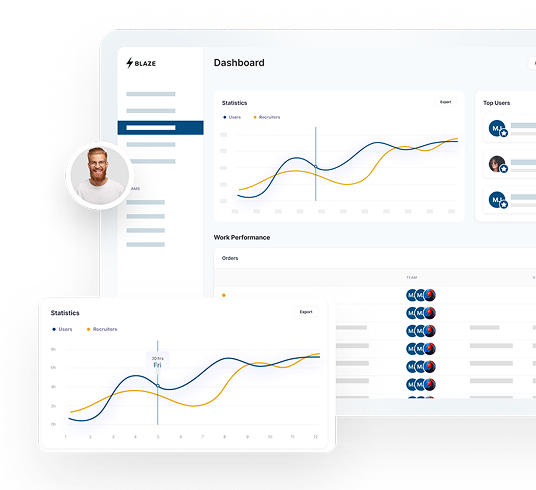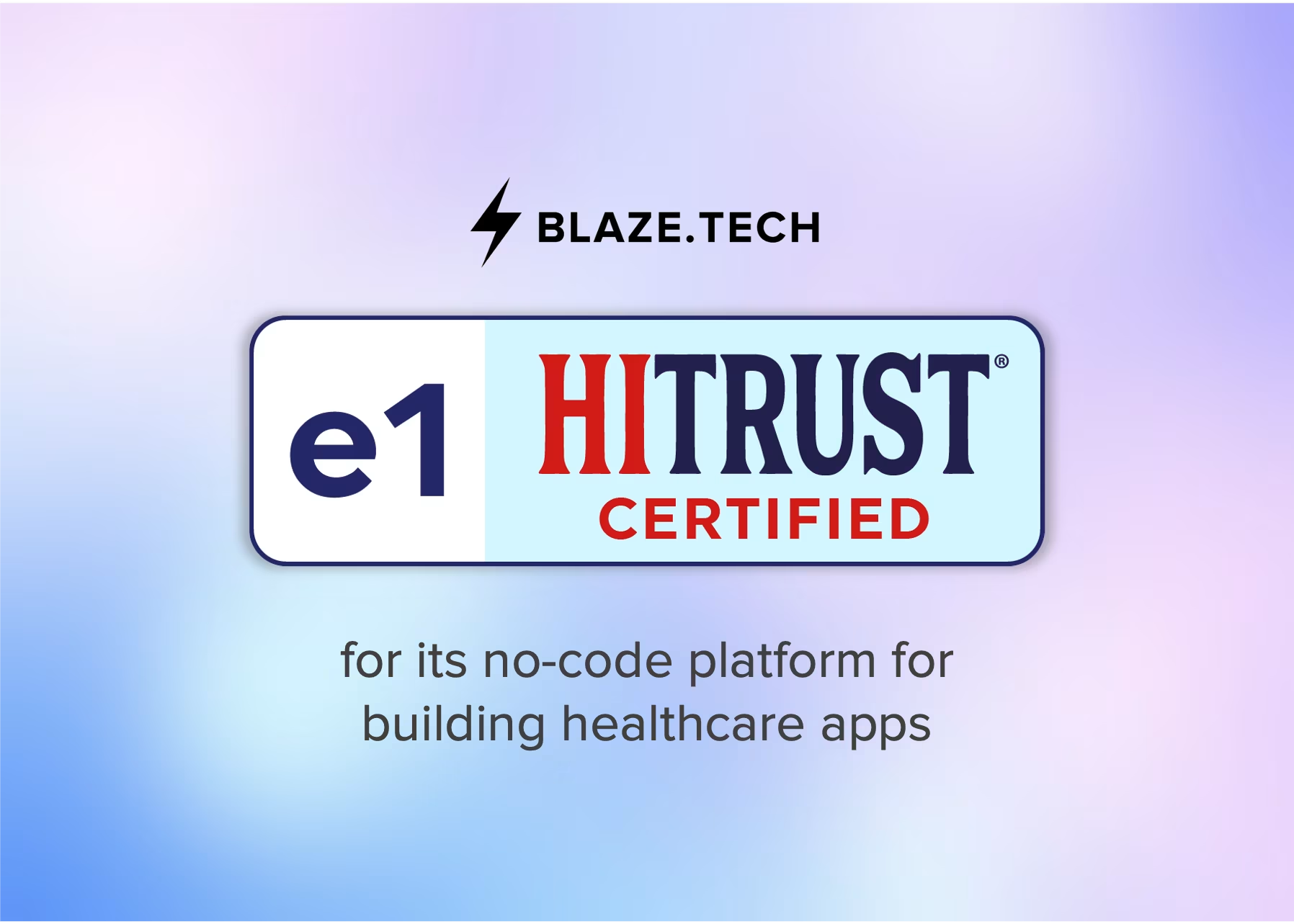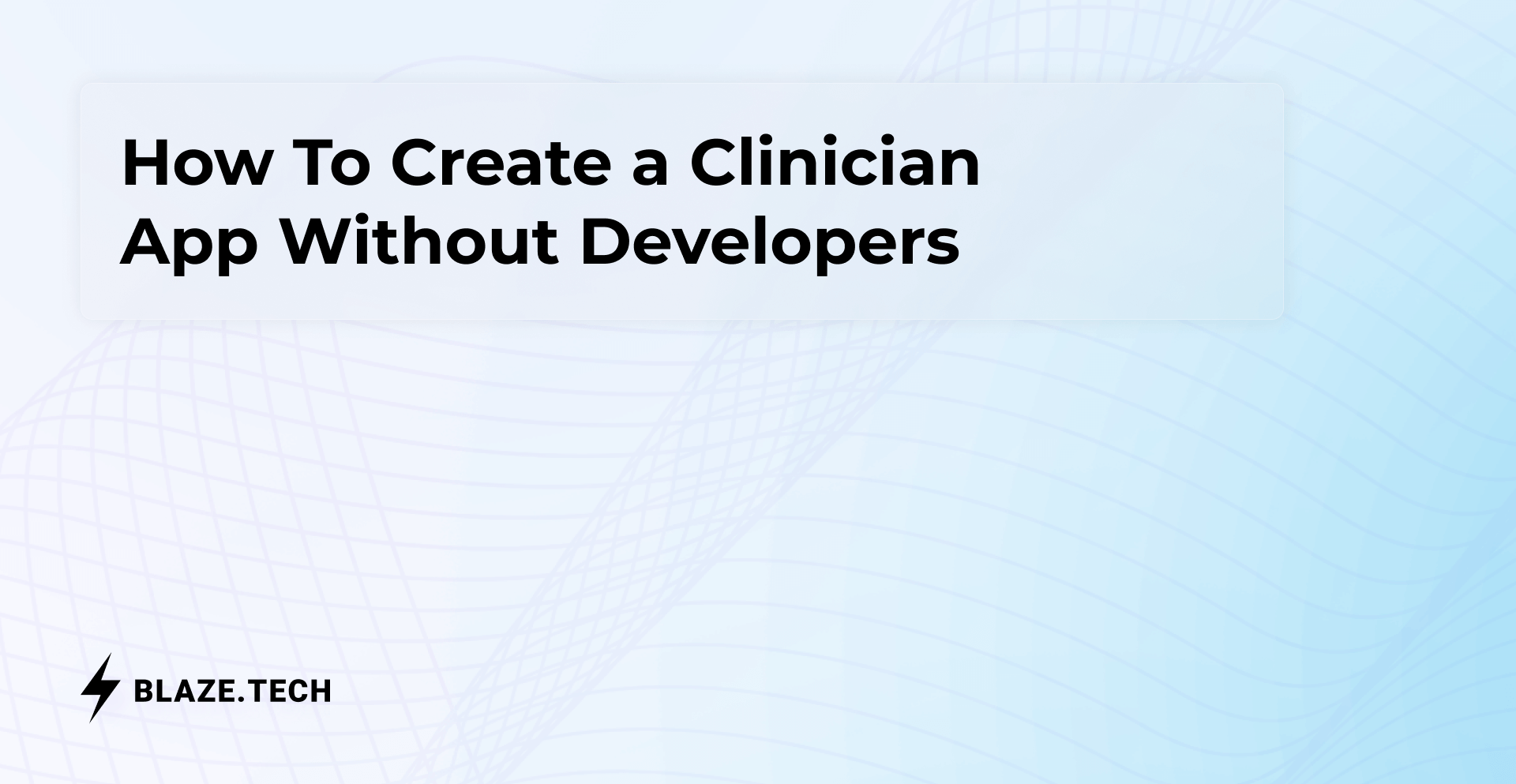Table of contents
Healthcare Security Breaches

Written by
Blaze Team

Reviewed by
Bruno Denuit
Expert Verified
In recent years, we've witnessed an alarming increase in security breaches within the healthcare sector. It's no longer an occasional problem – it's become a worrying pattern affecting every part of our healthcare system.
It's not just about large hospitals or specific clinics; these breaches can affect every health service.
Picture going to your family doctor, where your main focus should be on maintaining good health. Yet, now you have an additional worry – is your private health information really secure?
Healthcare security breaches are not just a serious invasion of personal space and privacy. Of course, this has financial and legal consequences for victims, but there are profound effects that stretch far beyond that.
Victims of breaches often experience excessive stress and anxiety, which can worsen or trigger once-dormant health conditions. Healthcare providers may face financial and legal repercussions for inadequate digital security.
With a noticeable increase in such incidents, it's key to take a deep dive into the statistics to truly understand the extent of the problem.
It's not about spreading fear, we're simply trying to raise awareness. Understanding how frequently these breaches occur, their nature, and the impact they have can provide valuable information on how to prevent breaches from happening and how to manage them if a breach occurs, benefiting both healthcare providers and patients.
Valuable data makes healthcare a prime target for bad players.
Understanding why patient data and electronic health records (EHRs) are so valuable to cybercriminals reveals why healthcare will always be at risk.
Let's break down the reasons that place the healthcare industry's data is a prime target for hackers:
- Black Market Value: According to Trustwave, healthcare records can command up to $250 per record on the black market. In stark contrast, a financial record like a payment card (i.e. credit card) is valued at around $5.40. This high valuation stems from the protected health information (PHI) contained within healthcare records, which is far more comprehensive than the data typically exposed in a credit card breach.
- Identity Kits on the Deep Web: Cybercriminals don't just stop at stealing data; they escalate their crime by creating "identity kits." As reported by Forbes, these kits, crafted using stolen patient data, including Social Security numbers, can sell for up to $2,000. They are used for activities like fabricating fake IDs or filing false health insurance claims.
- Ransom Demands: Healthcare security breaches often result in hefty ransom demands. While the exact figures vary, they can reach millions. Even smaller, regional hospitals are at risk, the case of Hancock Regional Hospital illustrates. The hospital faced a demand of $55,000 in Bitcoin to regain control of 1,400 patient files after a ransomware attack, reflecting the lucrative nature of these criminal activities.
These numbers underscore the shocking reality: healthcare data isn't just a target for unauthorized access, it's a high-stakes, high-reward sector for cybercriminals.
The richness and permanency of patient data make it more than just a temporary setback for the healthcare industry; they represent a continuing and severe threat, demanding equally robust security measures to protect patients and their data.

A closer look at data over the last 3 years reveals an alarming increase in security breaches in healthcare.
The past three years highlight a seismic shift in the frequency and severity of security breaches in healthcare.
But before we can analyze healthcare security statistics, it’s important to answer the question, “What is a security breach in healthcare?” This multifaceted threat includes:
- Phishing attacks
- Overt cyber-attacks
- Unauthorized access to patient records
- Compromised electronic health records
- Ransomware attacks
- Insiders leaking private information
Understanding these facets is critical as they directly feed into the alarming trends we're observing. Each type of breach, whether it’s a sophisticated cyber-attack or an internal leak, contributes to the bigger picture of vulnerability in healthcare data security.
Let’s take a closer look at the latest healthcare IT security statistics and their implications:
- Escalating Number of Breaches. The COVID-19 pandemic marked a new high in security breaches, but instead of improving, things have continued to get worse. In 2022 alone, the U.S. saw a 94% increase in medical security breaches compared to the previous year, setting a record.
- Rise of Ransomware Attacks. In the past, ransomware attacks were rare compared to phishing attacks. Now, however, 54% of healthcare organizations have fallen victim to ransomware attacks. These strikes cripple systems and hold essential patient data hostage, demanding astronomical ransoms for release. As of 2023, the average cost of a ransom payment is $995,450. Experts estimate that such attacks have caused $77.5 billion in damage to the healthcare industry.
- Growing Incidents of Unauthorized Access. The Department of Health and Human Services’ Office for Civil Rights began publishing summaries of breaches in 2009. By 2016, the industry set a record for security breaches via unauthorized access. But 2017 was a downward turning point. Every year since has marked a new high in stolen healthcare data.
- Widespread Economic Impact. While security breaches can happen in any industry, the economic impact is 2.5 times more costly in healthcare. Each healthcare security breach costs the victimized organization $380 per record, compared to an average of $152 across all other industries.
While advancements in healthcare IT have improved patient care, there will always be malicious actors who are looking to exploit any vulnerabilities.
This underscores the urgency for healthcare institutions to invest in a HIPAA compliant app builder to protect their data as well as their reputations.

What are the impacts of security breaches on the healthcare system?
These occurrences not only put sensitive patient information at risk but also have serious implications for the reputation and financial stability of healthcare systems. Let's explore the significant effects these security breaches have on both health care providers and patients.
- Patient Trust Erosion. At the core of healthcare is the confidential relationship between patients and providers, hinged on the protection of Protected Health Information (PHI). Breaches shatter this trust. Patients left to grapple with the aftermath of exposed health data may hesitate to share critical information in the future, potentially compromising their care.
- Reputational Damage. Trust is everything in healthcare. However, high-profile security breaches, like the Hancock Regional Health Hospital ransomware incident, have made it challenging for healthcare systems to earn back the faith of patients and the public. Each breach local and regional, if not national, media coverage, which slowly erodes the credibility of the institution. Such a setback could possibly take years to overcome.
- Financial Repercussions. The numbers speak for themselves – healthcare security statistics reveal the weight of the financial burden. In 2023 alone, the average cost of a healthcare security breach soared to $10.1 million. The toll isn't just monetary; it's also about the resources diverted from patient care to breach containment and prevention, echoing through the entirety of the healthcare sector.
The rippling effects of security breaches in healthcare highlight just how vital strong defenses and quick response strategies are.
These breaches are a somber reminder that in this interconnected world of healthcare, safeguarding patient data isn’t just about meeting technical requirements. It's a fundamental part of providing patient care and earning their trust.
How can healthcare providers and institutions safeguard patient data?
Navigating cyber security can be tough. However, being proactive can truly help prevent a computer security breach in healthcare.
Healthcare organizations that want to safeguard patient data and avoid security breaches need to adopt robust internal systems, apply advanced technology, and keep strict data management rules.
This isn't just recommended, it's absolutely necessary.
Here are some effective steps to strengthen defenses against security threats:
Invest in Robust Internal Tools and Healthcare ERP Systems
- Internal Tools: Using advanced, cutting-edge internal tools is vital in preventing security breaches in healthcare. But remember, all tools are not the same. It’s worth investing in solutions like Blaze that offer HIPAA compliance and enterprise-grade security.
- Healthcare ERP Systems: They tie together different functions, providing a centralized and more secure place for sensitive health information. Moreover, their state-of-the-art security features can provide strong protection against data breaches and unauthorized access.
Strong Authentication Methods to Prevent Unauthorized Access
- Two-Factor Authentication (2FA): One of the best ways of preventing unauthorized access is through 2FA. Under this, users need to offer two separate identification bits to gain access, which substantially lowers the chances of any security violations.
- Single Sign-On (SSO): Single Sign-On, or SSO, is a feature that platforms like Blaze offer. With SSO and Two-Factor Authentication (2FA), logging in becomes simpler while still maintaining strict security measures. This handy feature can also reduce password fatigue.
Data Management Best Practices
- Regular Audits and Monitoring: A key part of healthcare data management is to regularly check systems and fix any potential weak spots. Keeping an eye on access logs and what users are doing ensures that only those permitted can gain access to sensitive information.
- Education and Training: Regularly briefing the staff on the newest security measures and potential threats is fundamental in keeping data safe. When employees are informed, they're in a much better position to identify and protect patient data from potential security breaches.
- Data Encryption: By scrambling patient data both when it's stored and during its transmission, we make sure that, even if there's a breach in healthcare information security, the information stays unreadable and safe.
By adopting these practices, we're not just protecting patient data. We're also building trust in our healthcare system. It creates a safe and trusted environment where healthcare professionals and patients can interact with assurance and peace of mind.

How advanced platforms like Blaze can lead to improved healthcare security.
Healthcare security breach statistics act as a grim warning.
Keeping patient information safe calls for more than just attentiveness; it necessitates a steadfast resolve to incorporate the most cutting-edge safeguards we have at our disposal.
Advanced no-code platforms like Blaze are part of the solution.
Our features not only comply with HIPAA regulations, but also boast enterprise-grade security and scalability. Blaze's strict adherence to these regulations ensures that sensitive patient information is treated with the utmost respect and kept safe and secure.
Our HIPAA compliant app builder is designed with advanced user permissions and exhaustive audit logging, meticulously tracking and managing each access and action. This allows for tighter control and increased security of patient data.
The path to perfect data security in healthcare is ongoing and ever-changing. Equipped with the right tools and knowledge, and driven by insights from security breach statistics, healthcare providers can stay one step ahead.
To learn more about how Blaze can help, schedule your free demo today!
The Secure No-Code & AI Platform
Supercharge your team's operations and performance with better apps and tools.
Create custom apps fast
Secure & HIPAA compliant
Streamline complex workflows

The Secure No-Code Platform
Build apps with best-in-class security.


